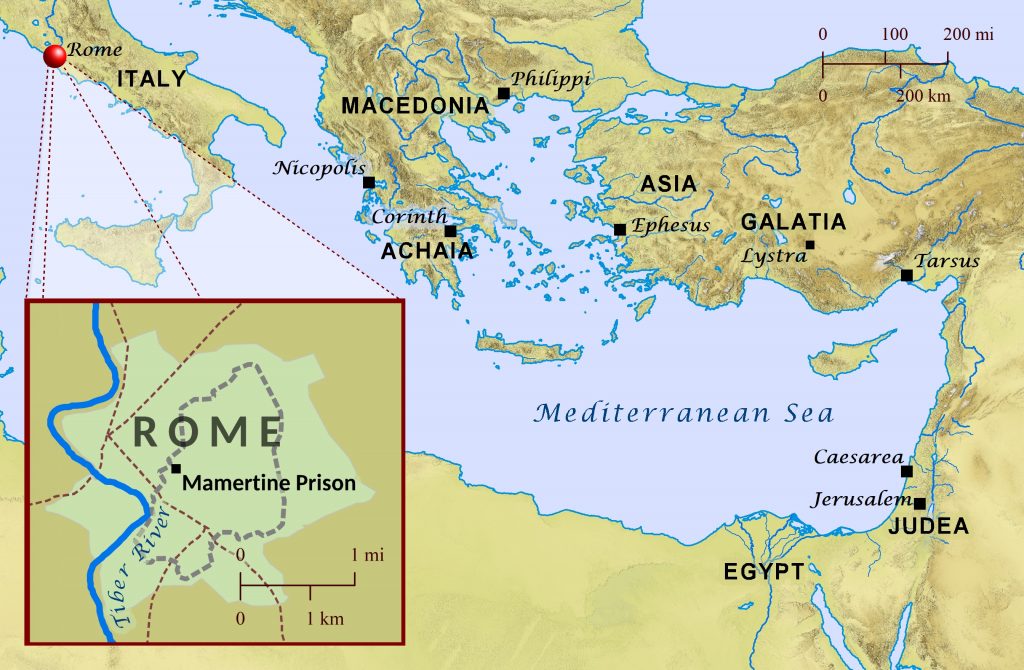Readers’ Version
Literal Version
26:1 Paul’s defence before Festus and Agrippa
26 So then Agrippa told Paul, “Okay, you can give your side now then.”
So Paul gestured with his hand and began:
2 “Concerning all the charges which have been brought against me by the Jews, King Agrippa, I consider myself fortunate 3 because you’re an expert on Jewish customs and issues, so I ask you to listen to me patiently.
4 “All the Jews know about my early life, from my upbringing in my own country and then in Yerushalem. 5 They also know, and could even testify to you if they would admit it, that I followed our religious laws very closely as a member of the Pharisees party. 6 Yet now I stand judged for believing in the same hope as our ancestors—that hope promised by our God 7 who we twelve tribes diligently serve day and night in order to obtain—the hope, your majesty, for which I’m being indicted. 8 So why do you all find it unbelievable that God can raise the dead?
9 “I too originally thought it necessary to do many things to oppose the cause of this Yeshua from Nazareth. 10 So in Yerushalem I worked to have many of these innocent believers locked up in prison with the authority of the chief priests, or if they were to be killed, I would add my vote against them. 11 And in all the Jewish meeting halls, when I found believers I punished them and forced them to curse God and treated them with extreme anger, even travelling to further away towns.
It_is_being_permitted to_you to_be_speaking concerning yourself.
Then the Paulos having_stretched_out his hand was_defending, 2 Concerning all things of_which I_am_being_indicted by the_Youdaiōns, king Agrippas, I_have_considered myself blessed going to_be_defending before you, today.
3 Most_of_all you being knowledgeable_one of_all the among the_Youdaiōns, of_ both _customs and questions, therefore I_am_beseeching you patiently to_hear from_me.
4 Therefore indeed the livelihood of_me, from youth which from the_beginning having_become among the nation of_me and in Hierousalaʸm/(Yərūshālayim), all Youdaiōns have_known, 5 knowing_before me originally, if they_may_be_willing to_be_testifying that according_to the most_exact sect the of_our religion, I_lived a_Farisaios_party_member.
6 And now for the_hope of_the promise to the fathers of_us, having_become by the god, I_have_stood being_judged, 7 to which the twelve_tribes of_us serving night and day in earnestness, is_hoping to_attain, concerning that the_hope I_am_being_indicted by the_Youdaiōns, king.
8 Why is_it_being_judged unbelievable by you_all, if the god is_raising the_dead?
9 Therefore indeed I supposed to_myself it_to_be_fitting to_do many contrary things to the name of_Yaʸsous/(Yəhōshūˊa) of_ the _from_Nazaret.
10 Which also I_did in Hierousalaʸm, and many both of_the holy ones I locked_up in prisons, having_received the authority from the chief_priests, and of_them being_killed, I_brought_ a_vote _against them.
11 And in all the synagogues, often punishing them, I_was_compelling them to_be_slandering, and exceedingly raging_against against_them, I_was_persecuting them as_far_as even to the outside cities.

